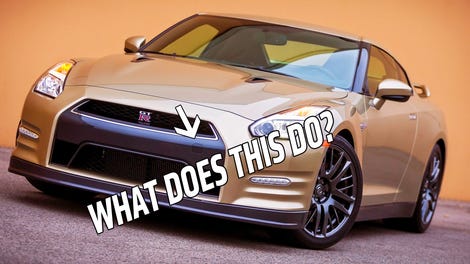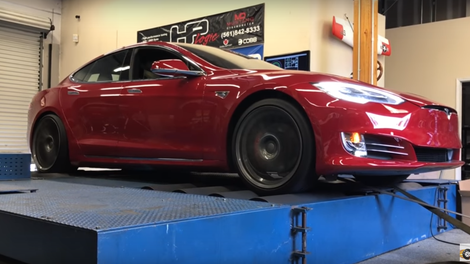
Good morning! Welcome to The Morning Shift, your roundup of the auto news you crave, all in one place every weekday morning. Here are the important stories you need to know.
Advertisement
1st Gear: Nissan Promotes “Le Cost Killer Deux” To CEO
So Carlos Ghosn is just the chairman of Nissan now, which really, come on, that’s fine. He’s got plenty to do. In his place, Japan’s second-largest automaker promoted his deputy and co-CEO, Hiroto Saikawa. And guess what? He’s a cost-killer too, just like Ghosn was.
If you’re expecting a shift at Nissan away from the rampantly boring, dated, pedestrian offerings they’ve had for the last decade and a half or so—with a new notable exceptions like the GT-R—it doesn’t sound like you’re gonna get it from this dude.
Advertisement
Automotive News says Hiroto Saikawa will “bring a gruff, tough, no-nonsense approach” to Nissan at a time when the auto industry is rapidly focused on emerging technologies.
The 63-year-old takes over in April from Carlos Ghosn, who engineered Nissan’s recovery from years of losses and debt through broad cost-cutting and dismantling the traditionally close ties with suppliers — the informal keiretsu network once key to Japan Inc.’s success.
Saikawa, who joined Nissan from Tokyo University 40 years ago, has been groomed to take over from Ghosn, who was dubbed “Le Cost Killer” after making his mark at Michelin and then Renault, Nissan’s main alliance partner.
“There is no difference between what I think and what he thinks,” Ghosn said at a news conference in October when Saikawa was appointed co-CEO of Nissan.
What can we expect from the new boss at Nissan? More of the same, meaning more cost-killing.
Advertisement
Sponsored
2nd Gear: War
Man, it can’t get much worse for Uber. Yesterday, we touched base on the newest dust-up for the ride-hailing giant, which now finds itself pinned against the behemoth that is Google. But this one little figure missed our eye.
Advertisement
To catch you up: Waymo, Google’s self-driving car project filed a lawsuit against Uber and its subsidiary, the self-driving truck start-up Otto. The chief claim? A former Waymo employee stole the autonomous tech designs and brought it to Otto.
And this alleged “calculated theft” is worth a whole damn lot: $500 million. From Bloomberg:
Waymo’s lawsuit is ill-timed for Uber, a company already mired in crisis over allegations of sexual harassment and recently beset by customer losses due to ties to President Donald Trump. Uber this week set up a commission led by former U.S. attorney general Eric Holder to investigate a former developer’s allegations of sexual harassment and discrimination by her manager. Weeks earlier, Chief Executive Officer Travis Kalanick stepped down from the president’s business advisory council after customers defected, citing his affiliation with Trump.
It’s great and all that Uber has a war chest of billions to operate, but Kalanick’s not squaring off with a piddly lawsuit from a customer this time. Google obviously has deep pockets, and it’s not going to idly sit by if it’s locked and loaded with enough evidence to prove this went down. Investors are already pissed off about the brazen culture of misogyny that has apparently been fostered at Uber HQ. Hard to imagine Theft Of Important Shit will make them feel any better.
Advertisement
3rd Gear: Alleged Thief Said Otto Didn’t Use Google’s Intellectual Property
Quickly, as these things roll, a profile of the engineer at the center of Google’s lawsuit has emerged. Anthony Levandowski, 36, is seen as a bit of a wunderkind in Silicon Valley. He was the mastermind behind Google’s self-driving car project for years, before deciding to jump ship without giving any notice in January 2016 for his new venture, Otto. Bloomberg illuminates here:
Advertisement
The prodigious engineer has spent much of his career chasing a dream of placing robotic cars on the road. While at the University of California at Berkeley, he entered a self-driving motorcycle in the 2004 DARPA Grand Challenge, a historic event for the young field.
He also started 510 Systems, a robotics firm building lasers for autonomous vehicles. The startup once ran a stunt with a self-driving pizza car. Levandowski started at Google in 2007, working on its Street View unit, where he played an instrumental role in building its mapping hardware to fit on cars.
After being recruited to its secretive car project, he continued to work on 510 Systems, according to two people familiar with the situation. Google eventually acquired the startup as it pushed deeper into self-driving technology.
Seems superbly talented! And as Waymo’s lawsuit points out, it took the company years to put together its self-driving car design. Otto, meanwhile, did it in months. Speaking with Forbes last fall, Levandowski was emphatic that his team made it happen on its own:
Advertisement
During that interview, Levandowski, vice president of Uber’s advanced technologies group, went out of his way to say that his current project was not built on the intellectual property of anything he had worked on at Google.
“We did not steal any Google IP,” he told FORBES at the time. “Just want to make sure, super clear on that. We built everything from scratch and we have all of the logs to make that—just to be super clear.”
Well, now we’ll get to see how the court defines “super clear.” Interesting times.
3rd Gear: Tesla Probably Needs To Raise Some Capital
Advertisement
The Model 3 may be on target for production starting this summer, but Tesla’s burning through serious bread, and it’s almost certainly going to need to raise some capital to stave off any risk. From Bloomberg:
A capital raise would provide more cushion to the smallest and youngest publicly held U.S. automaker, which has huge expenditures planned ahead of introducing the Model 3 sedan in July. Tesla burned through cash in the fourth quarter and expects to spend as much as $2.5 billion in the first half of the year before fielding its first mass-market car.
…
Tesla has been a serial spender under Musk, who’s made it his mission to accelerate the auto industry’s transition to electric transportation. Through the first half of this year, the company will have spent about $10 billion in research and development and capital expenditures since 2014, according to Morgan Stanley. Musk, the chief executive officer, said Wednesday while a cash raise isn’t critical to release the Model 3, it’s probably wise.
Tesla’s long-anticipated sedan is going to be a make or break moment. And there’s still a number of wrenches that could be thrown into the mix to delay Musk’s ambitious production goals, even if he doesn’t want to directly address them.
Advertisement
5th Gear: Oil Prices Possibly Heading To $30 A Barrel
Barring some action from OPEC, we could see crude prices dropping to around $30 a barrel, which is, in industry parlance, a lot. That’s the word from one Dutch bank, at least. Bloomberg elaborates:
Advertisement
The Organization of Petroleum Exporting Countries agreed at the end of November to limit collective production by 1.2 million barrels a day. It then got support from non-member nations, most notably Russia, that meant total planned curbs of about 1.8 million barrels daily. However, the agreed period for those reductions was the first half of this year, leaving uncertainty about what happens from July.
There was already a recent oil buildup on the east coast, but unlike that scenario, a drop in oil prices would mean cheaper gas, a commodity that’s priced based on global oil prices. So, maybe we’re plowing ahead through winter to a season with less-expensive drives.
Reverse: A Legend Is Born
Neutral: Nissan Is The New Toyota
Advertisement
Advertisement
It’s hard to have a lot of love for Nissan these days if you care about driving. The company has chased the mainstream and market share more than just about anyone else, and from styling to driving dynamics (again, GT-R excepted) they’re solidly mid-pack on everything. Can this last or will the automaker be fine on Rogue and Rogue Sport sales forever?
















